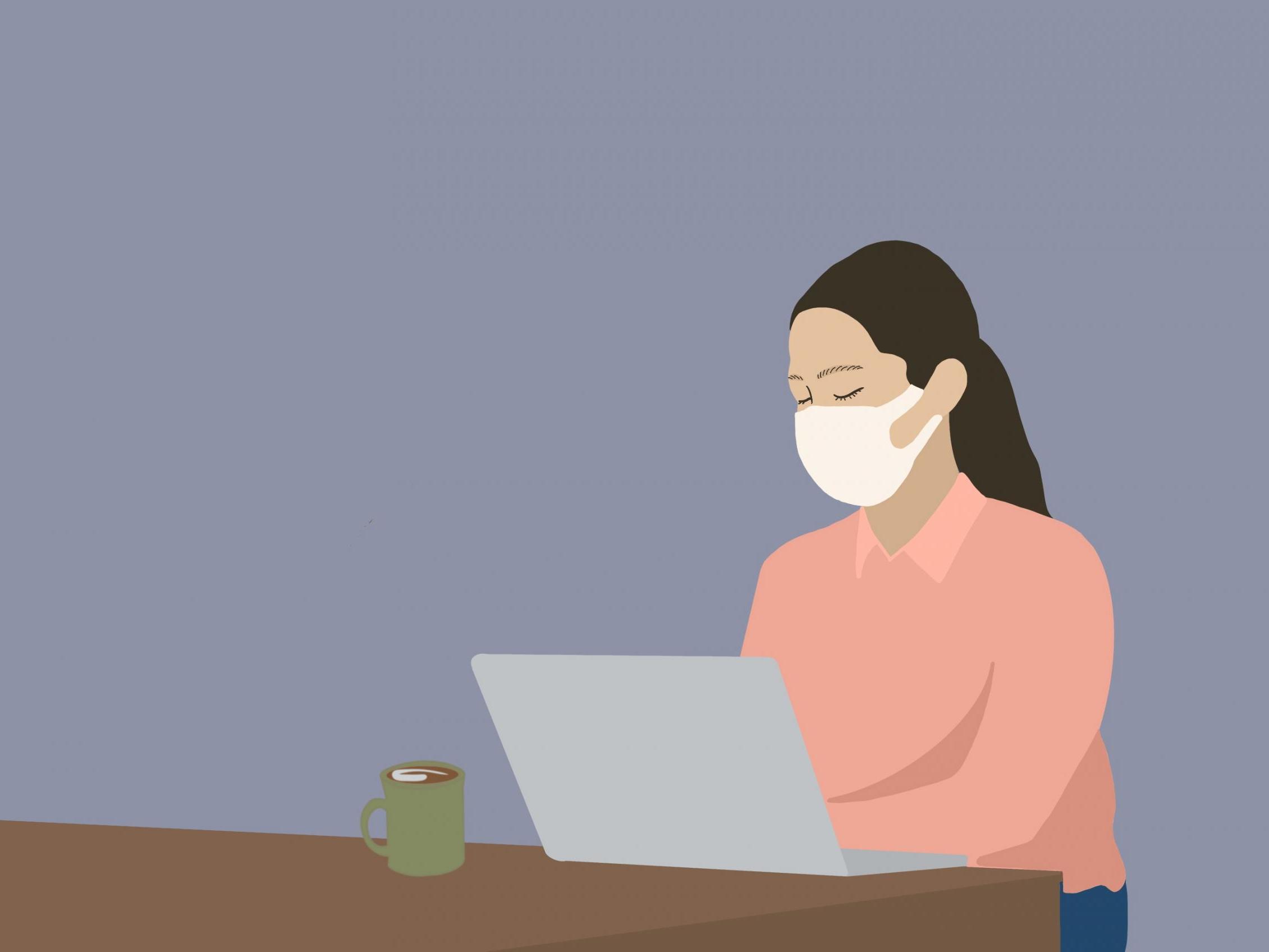Coronavirus tips: How to curb your anxiety about Covid-19 virus according to psychologists
As the number of confirmed cases in the UK rises, Sophie Gallagher speaks to experts about how to avoid unnecessary panic and anxiety


Your support helps us to tell the story
From reproductive rights to climate change to Big Tech, The Independent is on the ground when the story is developing. Whether it's investigating the financials of Elon Musk's pro-Trump PAC or producing our latest documentary, 'The A Word', which shines a light on the American women fighting for reproductive rights, we know how important it is to parse out the facts from the messaging.
At such a critical moment in US history, we need reporters on the ground. Your donation allows us to keep sending journalists to speak to both sides of the story.
The Independent is trusted by Americans across the entire political spectrum. And unlike many other quality news outlets, we choose not to lock Americans out of our reporting and analysis with paywalls. We believe quality journalism should be available to everyone, paid for by those who can afford it.
Your support makes all the difference.On 23 March, the UK government implemented a lockdown on the country to curb the spread of coronavirus.
While measures started to ease across the nation in July, in September prime minister Boris Johnson announced new legislation banning people from meeting socially in groups larger than six.
The ongoing changes in recent months have had a dramatic impact on daily life, from stopping all non-essential travel and pubs, restaurants and theatres forced to close, while people were asked to work from home unless they were a key worker.
Those with underlying health conditions, over the age of 75 and pregnant women were also told to minimise social contact for 12 weeks.
Despite the obvious seriousness of the situation it is important to keep the threat in perspective (during the 2017-18 UK flu season there were 26,408 deaths and 1,692 in 2018-2019). The UK’s chief medical officer Chris Whitty estimates a mortality rate for coronavirus of one per cent. Other earlier estimates have been higher at between 2 to 3.4 per cent.
In comparison, SARS had a mortality rate of more than 10 per cent.
The World Health Organisation and Public Health England have also warned there is no need to panic buy face masks, latex gloves or other extreme protective gear if you practise good basic hygiene like regularly washing your hands and covering your mouth and nose if you cough.
Of course for many it is still hard to not worry about what is going on and what the future holds.
Dr Michael Sinclair, a consultant psychologist, tells The Independent: “It is understandable there should be a level of concern. Our minds evolved from cave ancestors to worry: we focus on doom and gloom, we chew it over in our brain and we learn new survival skills. That is our mind just doing what it is meant to do.”
Panic, too, is contagious...”
Psychotherapist Silva Neves agrees but warns “panic, too, is contagious”, while the Samaritans encourage people to remember that they are not alone in feeling uneasy. "Many people struggle to cope at one point or another and going through a range of emotions during this time is common," they say.
So what do you do if health-related anxiety has become overwhelming?
Don’t always listen to your mind
“Listen to what your mind says is there and then look at the evidence for what is really there,” says Dr Sinclair. “We need to recognise that it is often a story our mind is telling us, not the reality.
“Try to do this by, for example, instead of saying ‘I’m going to get ill’ say ‘I’m having the thought that I’m going to get ill’ to emphasise this is your mind telling you that not reality.”
Mr Neves adds: “We have control over how much we think about it. We do have control over our thoughts, although it is hard work sometimes to control them. Worrying about it won’t guarantee a better outcome. So try to allocate some brain space for other important things too.”
Don’t try to ignore physical symptoms of stress
“Sometimes we can make ourselves feel unwell (and like we might have something like coronavirus) through panic and anxiety – those signs; shortness of breath and heart racing,” says Dr Sinclair. “But when this happens, instead of trying to immediately eradicate or ignore those feelings, which won’t help, make space for them, describe them as you experience them.”
Mr Neves says in moments of panic you should try to take a few breaths; sit down and count your breath in and out for 10 seconds. Then repeat.
The Samaritans adds that there are a number of things you can do to try and help ease your anxiety, from relaxation exercises such as controlled breathing, to making time for something you enjoy and talking about your problems with people you trust.
"Everyone feels low at some point in their lives and if you’re struggling to cope it may be difficult to see beyond your current situation," the charity says. "Talking about how you’re feeling can help put things into perspective and help you to feel more positive about the future."
Keep a record of your worries
Elizabeth Turp from the British Association for Counselling and Psychotherapy (BACP) says you can do something practical – something you can control – to help express anxiety. She suggests writing a journal or notebook.
“Allow yourself to worry, put it down in writing in a notebook, and then put that away. Once you’ve written it down, let it go,” she says.
You can also try drawing two circles – a circle of control and a circle of no influence – and fill them with things in your life that you worry about. This helps you to remember what things you can impact and those that, no matter how much you worry, you can do nothing about.
Only consume what you can handle
Mr Neves says if you’re struggling to cope you don’t have to keep watching live news, have notifications turned on or use social media, instead limit your exposure to the new information. “You can be strict with yourself, decide to only watch the news and read an update on the virus once a day,” he says.
“I’m not suggesting you [totally] ignore it, it is serious. By all means, keep track of the development. But you can reduce your anxiety by reducing the amount of time you think about it.”
While online support can be extremely helpful, mental health charity Mind adds that it is important to find a balance between your online and offline life. In order to help find the right balance, Mind suggests:
- Setting aside some time regularly to do something offline, like reading a book, doing some physical exercise, being outdoors in nature or trying out a relaxation technique.
- Protecting time in your day to eat healthily and get good sleep.
- Sometimes, online support is not enough. If you are feeling unwell, and being online isn't helpful, it may be a good idea to seek offline support.
- If you are finding that being online is starting to have a negative impact on your mental health, you may need to take a break for a while.
Take some practical steps
As well as managing your mind, there are simple physical steps you can take to make yourself feel reassured, like following the advice from WHO and PHE. “Do wash your hands with soap and water often, especially before you eat. Or wash your hands with alcohol gel. Follow the medical advice,” says Mr Neves.
Stay connected to your support network (digitally)
Gerard Barnes, CEO of mental health specialists Smart TMS, says that in times of stress it can be easy to want to completely isolate ourselves but it is crucial to maintain human interaction online or on the phone to reduce anxiety levels. “Maintaining strong connections will help you to feel supported and surrounded by positivity and good energy.
“You are also more likely to be able to have an open conversation about the virus with those close to you – being able to discuss the issue and perhaps make jokes about it, will help you to feel more comfortable and overcome any anxiety you may have over the threat.”
The Samaritans agrees, adding that while it is normal that the current climate will affect your mood, it is something you should talk about, however you can, "via video messaging, over the phone, texting or over the garden fence".
"Whilst we are physically isolated, it’s more important than ever for us to feel socially connected, so try and reach out to people to talk, and try to be there to listen to others," the charity says.
"While we've taken the difficult decision to stop offering face to face support in our branches, and training sessions for new volunteers, and it may take us longer to answer the phone or answer emails, we're still here."
Avoid speculation and focus on facts
In a world of 24/7 rolling news and social media updates, it can be easy to get drawn into speculation and hype.
But Mr Barnes says: “Try to avoid being caught up in the media storm and avoid reading excessive speculative reports. Stick to respected health-first websites, such as the NHS, to get clear, simple instructions and facts on the coronavirus and how to handle it.”
If you have been affected by this article, you can contact The Samaritans for advice and support by phone on 116 123 or email jo@samaritans.org.
During this time of uncertainty the charity has also put together a list of resources to help you take care of your mental health, whether you are struggling with health anxiety, the pressure of working from home or negativity on social media.


Join our commenting forum
Join thought-provoking conversations, follow other Independent readers and see their replies
Comments